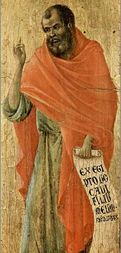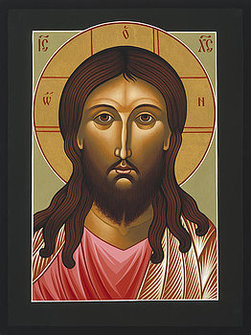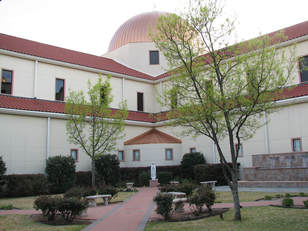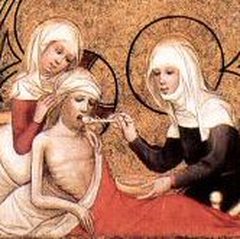 Of all the prophets, the one with the most heart-wrenching and poignant personal story is Hosea. Unlike all but one other prophet, (Jeremiah), his life and his emotions were a completely open book. He bravely laid it all bare in order to highlight the great love God has for His people, a people who had betrayed Him. The parallels Hosea drew with his own life meant that he had to become totally transparent in order to serve God and to get the message to the nation that God did not want to punish them so much as to bring them back to His love. In reading the prophecy of Hosea it is important to keep in mind that it is not about God getting some sort of perverse pleasure out of ‘smiting’ the people for their sins, but that it is the exact opposite: because He loved them, God sent the prophet to warn the people that in turning from Him they were choosing destruction. Thus, God chose Hosea to announce His message, a role which meant that Hosea’s life would become totally public: nothing about him would remain hidden. Faithfully Hosea accepted God’s call to prophesy in this total transparency, taking on the ministry as a loving response to God.  The Book of Hosea begins with God telling Hosea to marry Gomer, a woman God described as a harlot. One would think he only married Gomer out of duty to God, but surprisingly, he actually fell in love with her. This is evident in how he reacted when she ultimately abandoned him after she bore their third child: his heart was truly broken and the pain cut him to the core. Furthermore, because she ran off with another man, Mosaic Law allowed Hosea to easily divorce her and be done with the entire situation. But he did not. Despite the fact that everyone around him knew she had betrayed him, he openly professed how broken his heart was, begged her to return multiple times, and then forgave her when she finally did. (This ‘cycle’ happened more than once!) None of that is the sign of a man trapped in an arranged marriage. There is no doubt that he loved her deeply and truly wanted her back.  Hosea’s marriage became the metaphor he used in his prophecy. God inspired him to understand that when the people of Israel were ‘running off’ from Him through their pagan practices and selfish behaviors, God's feelings were similar to his.* Hosea made it clear that God did not want to lose them to their enemies, the Assyrians, who were looming on the borders of the nation, waiting to swoop down on the people made vulnerable by pushing Him away. In all that happened, Hosea chose to remain totally visible and transparent, letting the entire gamut of his emotions be seen as he put himself aside and channeled his love, his anger, and ultimately his sense of mercy, into speaking the message of God. Hosea, therefore, addressed Israel’s ‘harlotry,’ which refers to their adoption of pagan attitudes and behaviors. Their most serious crimes were idolatry and egregious abuse and oppression of the poor. The affluent literally withheld their aid from the poor, the alien, the widow, and the orphan in order to fuel their own hedonistic lifestyles. They worshipped in the temples to false gods, often participating in immoral activities such as pagan rituals that included male and female prostitutes, and worst of all, sometimes they immolated their first born children as offerings. In business they were often corrupt, and those with power abused it. However, we must remember that there was also a small segment of the population who were horrified at this and who remained faithful, despite those who were breaking the covenant with seemingly no fear of consequences.  Although many passages in the Book of Hosea seem filled with God’s anger, these statements arose not because He was a spurned, jealous lover, but rather that in His immense love He feared for His people. In contrast to the challenging words, there are also passages in which Hosea described God as both a loving father and a faithful spouse, sometimes speaking quite tenderly, such as when He says, “I will allure her… speak to her heart.” (Hosea 2:16) God wanted the people to return to Him through love, not threats, so even though He had Hosea outline in great detail what could happen to them, more than anything He desired to restore the relationship of love: “I will espouse you to me forever…in love and in mercy.”(2:21) The bottom line is that no matter what they did, God wanted to be merciful with them and He wanted to shower them with blessing and the spiritual prosperity which came with being His children. But God also made it clear that what He wanted was not empty ritual or for them to go through the motions to satisfy obligation, but rather He desires sincere relationship. He said: “For it is love that I desire, not sacrifice, and knowledge of God, not holocausts.” (Hosea 6:6)  With the growing number of the so-called ‘nones’ (those who espouse no religious affiliation) in our present age, and with some people claiming to be ‘spiritual, but not religious,’ it is not a huge stretch to see echoes of the words of warning found in the prophecy of Hosea. We should be disturbed by the growing number of those who have grown up with a faith community and then have opted out of religious practice. Their reasons are many, however, although perhaps some contributing factors are that some leaders have abused their authority and that our witness is simply not that strong; in our culture many are apathetic in living the faith, thus communicating that it is somehow unimportant or optional. But whatever their reasons, when people leave their community of faith, even if they still claim to be ‘spiritual,’ quite often the lack of accountability and the lack of exposure to worship and expressions of faith lead to apathy in prayer and finally to a loss of relationship with God. Outside of a faith community, our practices will erode, and so will our relationship with God: if there is nothing to feed it, faith will wither. However, if we want to change these attitudes, if we want to push against this exodus from churches, we have to live our own faith with purpose. That is, we must be prophetic, like Hosea, and live what we believe, giving witness to the goodness of God expressed through His faithful people.  Happily, the Book of Hosea ends on a resounding note of hope. Hosea urges the people to return to God saying that He will “forgive all iniquity and receive what is good.” (Hosea 14:3) God also says He “will love them freely” and that He “will be like the dew of Israel,” (Hosea 14:5-6) healing them and helping them prosper. The same is true today: God desires that His ‘runaway’ children would return to Him so that we would allow Him the honor of blessing and loving us! I suggest reading the Book of Hosea with our own times in mind. It is important to understand the prophets in order to have extra clarity not only about who God has always been, but because they also shed light on the words of Jesus in the gospels. Reading the prophets, particularly Hosea, can also inspire the faithful to live transparently; this means to live with our faith showing, not hidden. The point is not to be obnoxious or to fall into prideful behaviors, but rather it is to live humbly, with love and mercy, and to allow others to see us as we are: sinners who are loved deeply by God.  It is our witness in living the gospel that will present our faith as authentic. As God said, it is love He desires, which means a certain humility in our actions; therefore it is not our piety which we need to wear openly, but it is our sincerity in living the values Jesus taught, (loving our neighbors as ourselves, giving generously to the poor, serving humbly), that will touch hearts to return to God. If we present God as love and mercy, and witness to the value of the Christian community, people will become interested in what it is we profess. But we must actively work at it by participating in our churches, which are our faith families, and we need to speak up if there is healing which needs to be done. In short, if we want to live as saints, if we want to show others the way to the Lord, then we must be active and we must be transparent. Jesus said, “Do not hide your light under a bushel basket, but let your light shine so that others may see it.” (Paraphrase of Matthew 5: 15-16) Shining our light is living as transparently as Hosea lived. Let us, like him, be true to our call in response to love and mercy.  May we be inspired by the challenging, yet hope-filled words of Hosea the prophet! May we come to know the merciful love and mercy of God so that we might share it with others! May we be courageous in living our faith with transparency and sincerity! May we recognize that our actions, even the smallest ones, can make a difference in the life of another if we do them with great love! And may we let our light shine as we work at living the gospel values taught by Jesus, building the Kingdom of God through sincerity and love! Let us continue to meet in the Heart of Jesus! Peace! © Michele L. Catanese * Remember, the writer is personifying God because there is no other way to communicate the depth of God’s love. The truth of the matter is that our sin ‘hurts’ God because He loves us. It does not diminish God, but it diminishes our relationship with Him. Note: Next post, Sunday, September 9. Images: 1. This painting of the prophet Hosea was done by Duccio di Buoninsegna (1308-11). It is located in the Siena Cathedral in Siena, Italy. 2. All the photos in this post are mine; the one here is a sunset over the Badlands of North Dakota. I chose it to symbolize Gomer and her lover heading for the hills, leaving Hosea behind. I wanted a beautiful picture, however, to remind us that Hosea remained in love with her and considered their covenant binding no matter what she did. 3. I took this picture in South Dakota and chose to use it because the exterior of the tree looked healthy, yet it was rotted on the inside, seemingly the cause of its fall. It seems that Israel was suffering from a similar ailment during the time of Hosea: they thought they were healthy and appeared to be so, but they were rotting on the inside and were destined to fall. 4. This icon by Fr. William Hart McNichols is called Jesus Christ Holy Forgiveness. It seemed appropriate to place it here because God was continually telling the people that He loved them and wanted to draw them back with cords of love. One could say that when Jesus hung on the Cross He was "bound" by love and tremendous forgiveness for the sins of the world. You can find this icon at http://frbillmcnichols-sacredimages.com/featured/jesus-christ-holy-forgiveness-040-william-hart-mcnichols.html. 5. I took this photo while hiking on Copper Mountain in Copper, Colorado, a few years ago. It seems to offer an easier path, but the lure of that which is easier is often a deceptive one. Cultivating a faith life and living as a prophetic witness takes a bit of work and is far from the easy road, but it is worth the effort since the goal is God. 6. This is a Catholic Church outside of Dallas, Texas. I wanted a representation of a community of faith as a reminder of the importance of fellowship and as an example of living as disciples. 7. This painting depicts the Corporal Works of Mercy outlined in Matthew 25. I chose to use it here because it is a beautiful example of how to make our faith visible through humble service. 8. I took this photo in the Boston Gardens. I chose it for the end of the post because of the reflection of the trees on the water as a symbol of us mirroring the love of God. I also liked the two people on the bench in the left corner as a sign of community. NOTE: In compliance with GDPR rules, I wish to make it clear that I do not gather any information on any of my readers at any time.
Joanie hughes
8/27/2018 04:46:03 pm
Thank you
David
8/30/2018 07:25:28 am
Michele, Reading your words on Hosea brought back the memory of my Master's dissertation as it was on this beautiful prophet stressing God's love for His people. I just wish you'd written this blog entry 40 years ago (when you were in the womb) as I could have 'borrowed' some of your thoughts. Comments are closed.
|
Heart Speaks to Heart
|

 RSS Feed
RSS Feed

